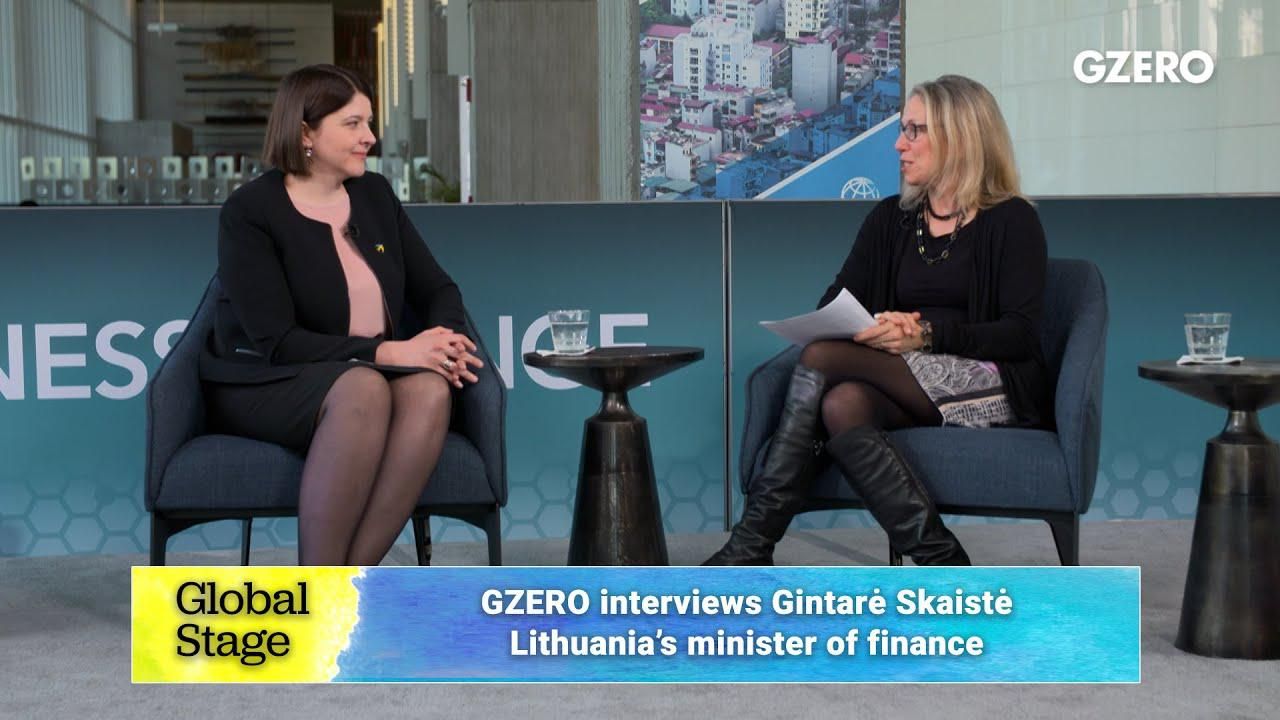
Over the past two years, Lithuania's economy was hit hard first by COVID, then by the Belarusian migrant crisis, and finally high energy prices late last year.
But now it's proving more resilient than others to the effects of the Russian invasion of Ukraine. Why? Mostly because they prepared for it, Lithuania's Finance Minister Gintarė Skaistė tells Eurasia Group's Shari Friedman in a GlobalStage conversation.
Indeed, the Baltic nation recently grabbed headlines when it became the first EU member state to stop buying Russian oil and natural gas.
But the Lithuanians started the process seven years ago, soon after Russia annexed Crimea.
How did Lithuania do it? Skaistė explains they put a lot of effort into achieving energy independence from Russia, for instance by investing in LNG terminals and connecting to the Nordic countries and Poland.
"Today we have the fruits of … of this prudent policy in the energy sector."
What's more, Skaistė says Lithuania's energy strategy has facilitated the country's transition to renewables and helped lower overall energy consumption.
Watch more of this Global Stage event: Live from Washington, DC: Financing the Future
- Is global economic inequality getting worse? - GZERO Media ›
- The Graphic Truth: Kicking the Russian gas habit - GZERO Media ›
- Hard Numbers: Lithuania cuts off Russian gas, Shanghai mass ... ›
- Foreign Minister Linas Linkevičius on Lithuania, Belarus, NATO ... ›
- Europe's 2023 energy scarcity will drive green transition, says IMF chief - GZERO Media ›